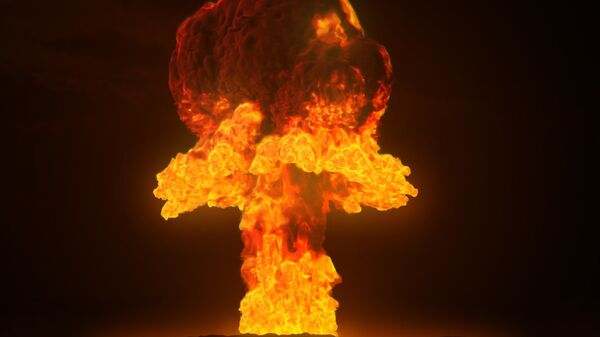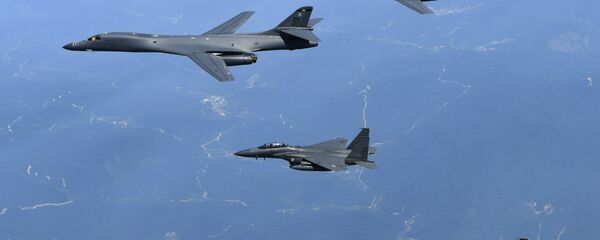The paper, distributed in China's northeastern province of Jilin, published the "common sense" guidelines, entitled "Knowledge About Nuclear Weapons and Protection," on Wednesday. The accompanying illustrations offer advice on how to survive the five destructive elements of a nuclear blast: light radiation, the blast wave, early-stage radiation, the nuclear-trigged electromagnetic pulse, and contamination from nuclear radiation.
Jilin Daily spent an entire page today to introduce the general knowledge of nuclear weapons and the protection of civilians after nuclear strike. What is the underlying message? PS: Jilin is China’s northeastern province next to North Korea pic.twitter.com/XHlmjnjhk3
— Jinghan Zeng (@Jinghan_Zeng) 6 декабря 2017 г.
The article recommends that people who may find themselves outside during a nuclear explosion should take cover in a ditch, cover any exposed skin in light clothing, or hide in a river or lake to minimize the chances of instant death. The accompanying cartoons offer advice on minimizing the effects of nuclear radiation, including using water to wash off shoes, showering and washing out your mouth to remove radiation, closing windows and doors, using cotton buds to clean your ears, and speeding up the expulsion of radiation through stomach pumping or induced urination.
The escalating security situation in the Korean peninsula, where North Korea is engaged in nuclear and missile testing amid continued US and South Korean military drills along its borders, is not mentioned in the article directly. Instead, Jilin Daily turns to history, and the US decision to drop a nuclear bomb on Hiroshima, Japan in August 1945, were the blast wave, fires, and radiation killed over 70,000 people, and destroyed over 80% of the city's infrastructure.
China's border with North Korea stretches 1,420 km; Russia, meanwhile, has its own 17 km border with the country; Russia's major Far Eastern port city of Vladivostok is located about 120 km from the North Korean border. Concerned about the disastrous consequences of a potential conflict on the peninsula, Beijing and Moscow have each called for an end to the tense standoff between Pyongyang and Washington.



